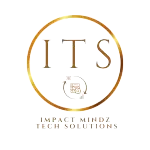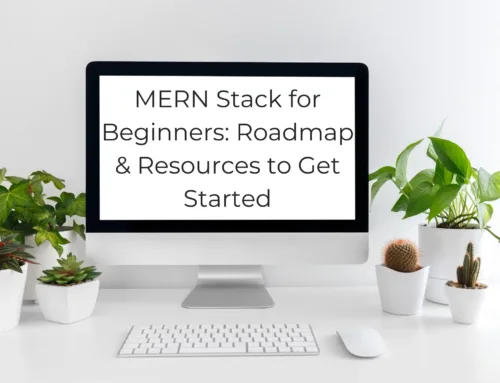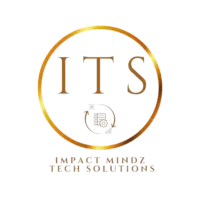In the ever-evolving web development landscape, frameworks and technologies come and go. But a select few stand the test of time, offering developers a powerful and efficient way to build dynamic, scalable web applications. Enter MERN Stack Mastery—a potent combination of JavaScript-based technologies that has become a favorite among developers worldwide.
At Impact Mindz Tech Solutions, we’re truly passionate about leveraging the MERN stack to craft exceptional web experiences for our clients. This blog takes an in-depth look at the MERN stack, covering its core components, benefits, and how it enables us to create advanced web applications.
What is the MERN Stack?
MERN stands for MongoDB, Express.js, React.js, and Node.js. Each component plays a crucial role in the development process:
MongoDB: A NoSQL document-oriented database, MongoDB offers flexibility and scalability for storing your application’s data.
Express.js: Built on top of Node.js, Express.js acts as a lightweight web framework for creating APIs (Application Programming Interfaces) that allow your front-end and back-end to communicate seamlessly.
React.js: A powerful JavaScript library for building dynamic user interfaces (UIs). React’s component-based architecture promotes code reusability and maintainability.
Node.js: The foundation upon which everything rests. Node.js is a JavaScript runtime environment that enables building server-side applications using JavaScript. This allows developers to write code across the entire application stack in a single language.
MERN: A Developer’s Dream Team
The synergy between these technologies is what makes the MERN stack such a compelling choice. Here’s why:
Full-Stack Development with JavaScript: Traditionally, web development involved juggling different languages for front-end and back-end development. The MERN stack empowers developers to use JavaScript for both, simplifying the development process and fostering greater team collaboration.
Rapid Prototyping and Development: React’s component-based nature and MongoDB’s flexibility facilitate rapid prototyping. Developers can quickly iterate on design and functionality, leading to faster development cycles.
Performance and Scalability: Node.js is known for its asynchronous and event-driven architecture, making it highly performant under load. Coupled with MongoDB’s horizontal scalability, the MERN stack allows your application to adapt seamlessly to growing user demands.
Rich User Experiences: React’s virtual DOM (Document Object Model) enables smooth UI updates, delivering a responsive and dynamic user experience.
MERN for Beginners: A Launchpad for Your Web Development Journey
While the MERN stack boasts undeniable benefits, it’s not without its learning curve. Here’s a roadmap for beginners who want to embark on this exciting path:
Solid JavaScript Foundation: Before diving into frameworks and libraries, ensure a firm grasp of vanilla JavaScript fundamentals. This includes understanding data structures, functions, object-oriented programming concepts, and DOM manipulation.
Mastering Node.js: Node.js serves as the backbone of the MERN stack. Learn how to create servers, handle HTTP requests, and explore popular Node.js modules like Express.js.
Conquering MongoDB: Embrace the power of NoSQL document databases with MongoDB. Start by understanding data schema design in MongoDB and practice common operations like CRUD (Create, Read, Update, Delete).
React.js for Dynamic UIs: With a solid foundation in JavaScript, delve into React.js. Learn to create components, handle state management, and leverage lifecycle methods to build interactive user interfaces.
Express.js for API Creation: Explore how Express.js simplifies building APIs that act as a bridge between your React front-end and MongoDB back-end.
Beyond the Basics: Advanced MERN Development Techniques
As you progress on your MERN development journey, consider delving deeper into advanced techniques to create robust and feature-rich applications:
Authentication and Authorization: Implement secure authentication mechanisms like JWT (Json Web Token) to manage user access and protect your application’s data.
State Management with Redux: Leverage libraries like Redux for complex applications requiring centralized state management and predictable data updates across different UI components.
Real-time Communication with Socket.IO: Incorporate real-time communication features like chat or live updates by integrating Socket.IO, a library that enables bidirectional communication between servers and clients.
Testing and Debugging: Adopt best practices for testing both front-end (unit testing) and back-end (integration testing) aspects of your application. Tools like Jest and Mocha are excellent allies in the debugging process. Security Considerations: Security should be paramount. Implement robust security measures like input validation, output encoding, and regular security audits to protect your application from vulnerabilities.
MERN Stack: A Versatile Tool for Modern Web Development
At Impact Mindz Tech Solutions, we specialize in leveraging the MERN stack to deliver high-quality web solutions tailored to our clients’ unique needs. Our team of experienced MERN developers stays up-to-date with the latest advancements in the technology landscape, ensuring that your projects benefit from cutting-edge solutions.
Ready to embark on your MERN development journey? Contact us today to discuss your project requirements and explore how we can help you build exceptional web applications.
https://impactmindz.com/contact/
Conclusion
MERN Stack Mastery has undoubtedly revolutionized web development by providing a powerful and efficient toolkit for building modern, scalable, and user-centric applications. By thoroughly understanding the core concepts and advanced techniques associated with MERN Stack Mastery, you can unlock its full potential and create truly exceptional web experiences.






